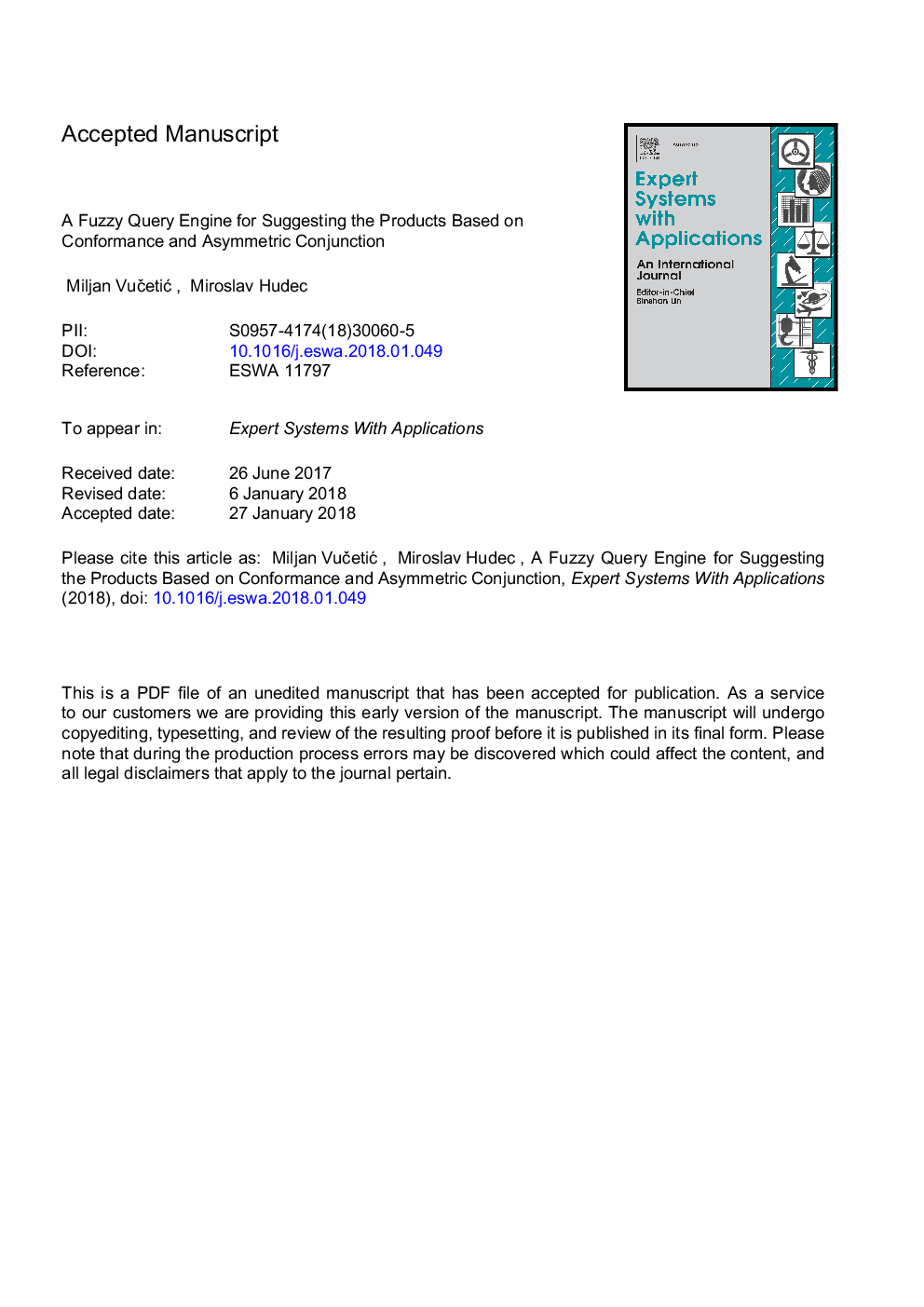| Article ID | Journal | Published Year | Pages | File Type |
|---|---|---|---|---|
| 6855078 | Expert Systems with Applications | 2018 | 37 Pages |
Abstract
Most of the existing query engines built into modern e-commerce platforms retrieve products by means of text and numerical matching. Conventional query engines for conducting product search suffer from several problems because of which they are not good product recommendation engines. First, they solve tasks without considering semantic uncertainties in users' questions and in data and therefore do not consider partial matching of query conditions. Users may need to input imprecise information to express their preferences or data describing products can be imprecise as well. Second, existing query engines used for conducting product search tasks do not consider conformance among tuples' features and aggregation of atomic conditions of different nature. Fuzzy query approaches solve majority of problems related to semantic uncertainty, but do not cover all possible flexibilities to a sufficient level. When user defines sharp conditions (even though he might have values similar to provided ones in mind), entity either fully matches or fundamentally differs, regardless of the similarity between feature's value and the value appearing in conditions. This paper proposes a novel approach to suggesting suitable products based on fuzzy conformance between features appearing in the vector of the ideal product from customer's point of view and the features of existing products. In the second stage, several aggregations of atomic conditions for calculating overall matching between user's needs and available products in a data set are discussed. In addition, our approach is able to manage customers' requirements expressed by constraints (features which should be met) and wishes (it is nice if these features are met) by the and if possible operator. Thus, asymmetric conjunction is an effective way to capture them. Experiments on a data set of used cars have shown promising results. Proposed fuzzy query engine considers some complex behaviors such as imprecise preferences, vague data in datasets, constraints and wishes in users' requirements without previous history of queries, suggested answers, feedbacks, gathered ratings and customers' personal data. It provides application in a specific domain of intelligent systems. The proposed framework can be adapted in a straightforward manner to any system for recommending suitable products, especially for the less-frequently purchased ones. Moreover, businesses that are not able to build or manage complex recommendation systems for gathering customer's behavioral data, as well as customers who are concerned with privacy risks might have benefit from this approach.
Related Topics
Physical Sciences and Engineering
Computer Science
Artificial Intelligence
Authors
Miljan VuÄetiÄ, Miroslav Hudec,
